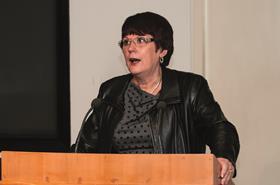Consultation published ahead of second anniversary of Grenfell Tower fire

The government has launched a consultation on its plans to reform building safety in the wake of Dame Judith Hackitt’s Independent Review of Building Regulations and Fire Safety which came out last year.
The consultation, which closes on 31 July, proposes reform of building safety and spans five broad areas.
These include the scope of the new regime and the concept of dutyholders who have clear responsibilities throughout a building’s design, construction and occupation.
READ MORE: Making Hackitt happen
LEARN MORE: Implementing the Hackitt review – next steps forward
It also discusses plans for a new building safety regulator, giving residents a stronger voice and bolstering enforcement and sanctions against those who do not comply.
The specific proposals include the introduction of five dutyholder roles for buildings in scope during the design and construction phase.
The responsibilities of the client, principal designer, principal contractor, designer and contractor will all be laid out in law.
Duty holder positions
Client - Any person for whom a construction project is carried out as part of their business;
Principal Designer - A designer appointed by the Client to control plan, manage, coordinate and monitor the pre-construction phase, when most design work is carried out;
Principal Contractor - A contractor appointed by the Client to plan, manage co-ordinate and monitor the construction phase;
Designer - Any person who carries on a trade, business or other undertaking in connection with which they:
i. prepare or modify a design, or
ii. arrange for, or instruct any person under their control (including, where the person is an employer, any employee) to prepare or modify a design;
Contractor - Any person who in the course of furtherance of a business carries out, manages or controls construction work (e.g. building, altering, maintaining or demolishing a building or structure). Anyone who manages this work or directly employs or engages construction workers is a contractor
The government is also recommending that reforms be initially applied to multi-occupied residential buildings of 18m or more, which is approximately six storeys, with Hackitt’s report suggesting the new rules should apply to buildings of 30m or more.
Health and safety legal director at law firm Pinsent Masons, Katherine Metcalfe, said: “The government’s proposals go significantly beyond Hackitt’s recommendations in a number of respects. The new regulatory regime will apply to many more buildings than Hackitt proposed which has potential to prompt a widespread cultural shift for housing and more broadly for the UK’s built environment.”
The consultation also recommends that formal enforcement powers to correct non-compliant work should start from the time a serious defect is discovered. It also says an enhanced civil penalty regime should be available under the new building safety regulatory framework to address non-compliance with building safety requirements as a potential alternative to criminal prosecution.
RIBA’s executive director for professional services, Adrian Dobson, said: “We urge the government to extend these regulations to other high risk buildings such as schools, hospitals, care homes and prisons and adopt vital recommendations such increased requirements for the use of sprinklers.”
The consultation also lays out plans for a new building safety regulator that will have oversight of the new regulatory regime of the new regime and setting standards.
It will also be required to advise the government on changes to the scope of the regime and have oversight of work to drive increased competency of professions and trades.
The publication of the consultation comes a week before the second anniversary of the Grenfell Tower fire in west London which claimed 72 lives.
You can book tickets to Building’s Implementing the Hackitt review – next steps forward event here



























No comments yet